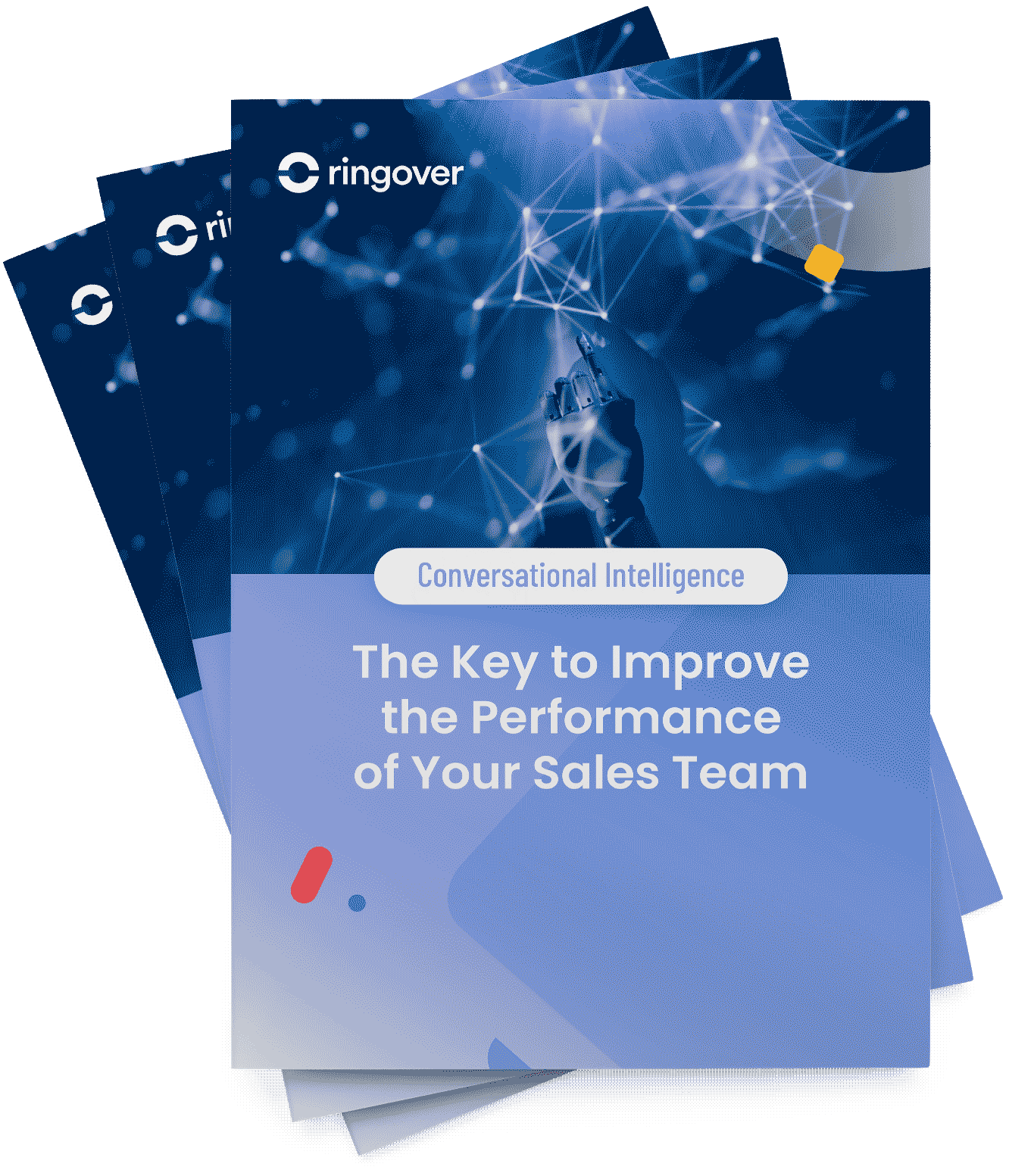Summary
The global AI assistant software market, valued at $8.5 billion in 2024, could reach $35.7 billion by 2033, driven by an average annual growth rate of 17.5% [1].
This trend is explained by a growing desire to automate the most time-consuming tasks—such as scheduling, customer support, and information retrieval—in order to free up time for more strategic priorities.
But how should companies approach this shift? Are all AI assistants created equal?
What is an AI Assistant?
An AI assistant is an intelligent software designed to interact with users and autonomously automate tasks. These solutions rely on artificial intelligence and natural language processing (NLP) to understand commands, organise workflows, and simplify data management.
The operation of a virtual AI assistant revolves around several key steps:
- Input management (text, voice, or data)
- Natural Language Processing to understand intent
- Context awareness to adapt responses
- Execution of requested actions
These tools can automate a wide range of tasks, such as scheduling meetings, drafting content, or managing customer service through advanced conversational AI features.
The 15 Best AI Assistants compared
Discover our selection of the top AI assistants of 2026 that are transforming task automation. These intelligent solutions adapt to a wide variety of needs: customer support, content creation, workplace productivity, daily management, and more.
| AI Assistant | Main Specialty | Key Advantages |
|---|---|---|
| Ringover | Shopping support, navigation help, customer service | 24/7 personalised responses, quick integration, intuitive dashboard, no-code setup |
| Zendesk | Intelligent customer service | Automatic ticket filtering, smart escalation |
| Dydu | No-code chatbots | Development-free creation, drag-and-drop interface |
| iAdvize | Proactive customer engagement | Targeted triggers, higher conversion rates |
| Mistral AI | Ethical conversational models | French-language precision, reliable answers |
| ChatGPT | Versatile assistant | Multifunctional, open API, free version available |
| Microsoft Copilot | Microsoft 365 productivity | Native integration, reduced learning curve |
| Claude AI | Multimodal assistant | Advanced language analysis, strong ethical framework |
| Gemini | Google ecosystem | Google integration, advanced NPU processing |
| Jasper AI | Marketing content creation | Fast copywriting, voice command capabilities |
| Notion AI | Productivity & knowledge management | Summarisation, task automation, integration with Notion workspace |
| Intercom Fin | Customer service automation | AI-powered chat, context-aware replies, integrates with support workflows |
| Fireflies.ai | Meeting transcription & analysis | Automatic call transcription, action item extraction, CRM integration |
| Ada | Automated customer support | No-code chatbot builder, multilingual support, scalable automation |
| Kore.ai | Enterprise conversational AI | Omnichannel assistants, advanced NLP, tailored for US/UK enterprises |
Top 15 AI Assistants for Businesses explained
1. Ringover AI Assistant
Ringover offers a high-performance AI voice agent which relies on your own data to deliver accurate, fast, and relevant answers as soon as a need arises (FAQ, product catalogue, customer history, etc.).
What Ringover's AI assistant can do
Interact seamlessly, 24/7: it handles recurring queries and adapts its tone to match your brand voice.
Guide with finesse: it doesn't just answer—it supports visitors, simplifies navigation, assists the buying process, and gently re-engages hesitant users.
Enhance customer relationships: installed in just a few clicks via script, it lightens the load on support teams while adding value where a simple chatbot would fall short.
What sets Ringover apart?
- Advanced customisation: tone, design, data sources—everything can be tailored to reflect your identity.
- Quantifiable results: depending on industry, the AI assistant autonomously handles 80% of requests without human intervention, which can lead to a decrease of about 30% in operational costs [2].
- Smooth setup: configure, test in real time, deploy—with Ringover's support team guiding you every step of the way.
2. Zendesk

Zendesk has built a solid reputation in the customer support world. Its AI assistant works like an intelligent filter: it processes simple requests, directs users to the right resources, and leaves the more complex cases for human agents.
This allows for faster exchanges, lighter workloads, and stronger service continuity.
3. Dydu

Dydu offers a no-code solution to create conversational bots powered by generative AI [3]. Specialising in AI chatbots for businesses and institutions, Dydu provides a self-service platform that allows autonomous deployment without developers.
4. iAdvize
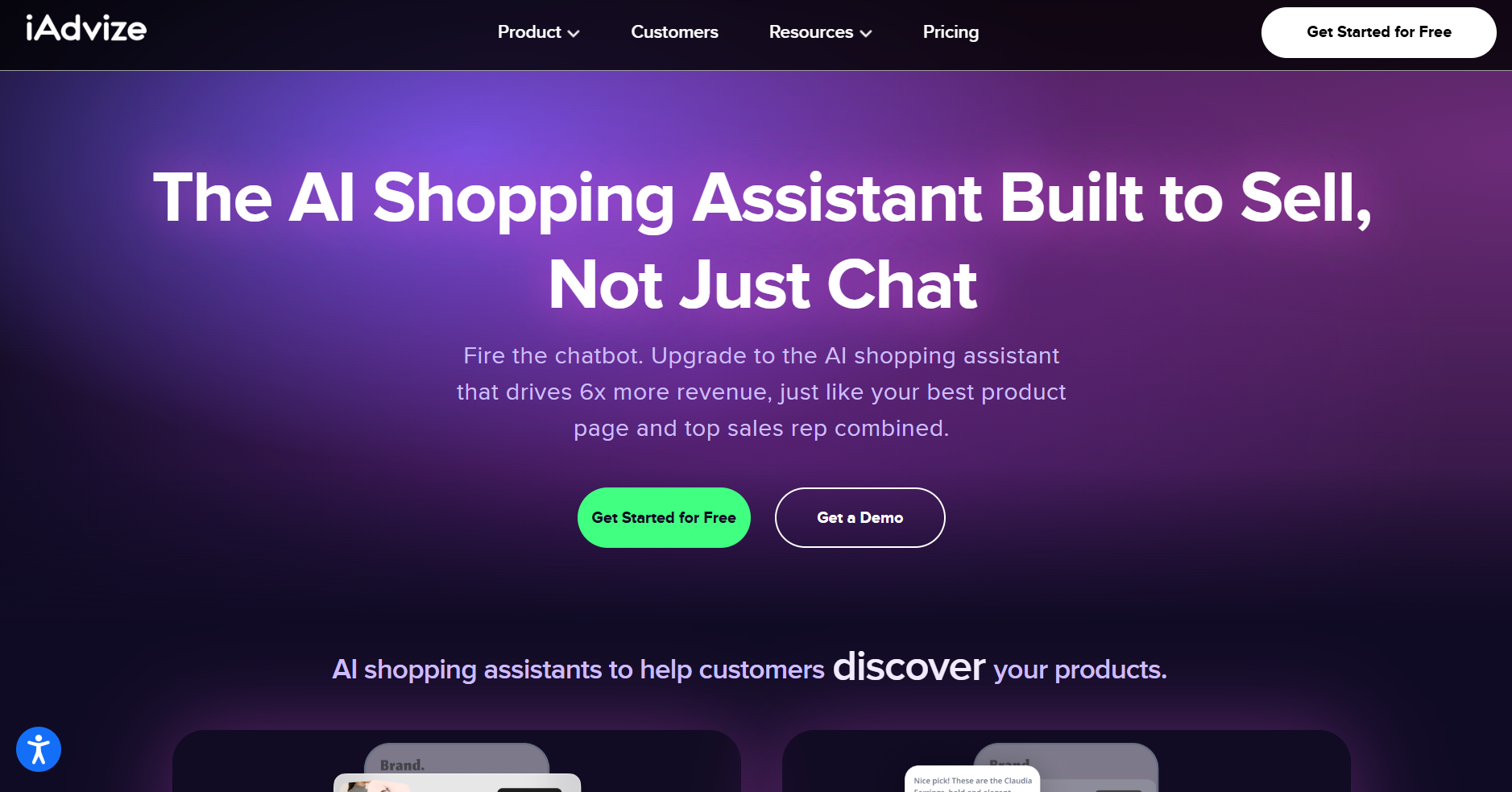
iAdvize blends AI with human interaction to strengthen customer engagement. Like Ringover's AI assistant, it analyses visitor behaviour and can trigger targeted conversations, supporting both sales teams and customer service.
5. Mistral AI

Mistral AI is a French startup [4] that emphasises precision and ethics in the design of its conversational models. Strictly speaking, Mistral AI is not an assistant itself.
However, the assistants and AI agents it enables stand out for their ability to deliver reliable, structured responses—especially in environments where accuracy is critical.
A strong option for organisations that won't compromise on communication quality.
6. ChatGPT
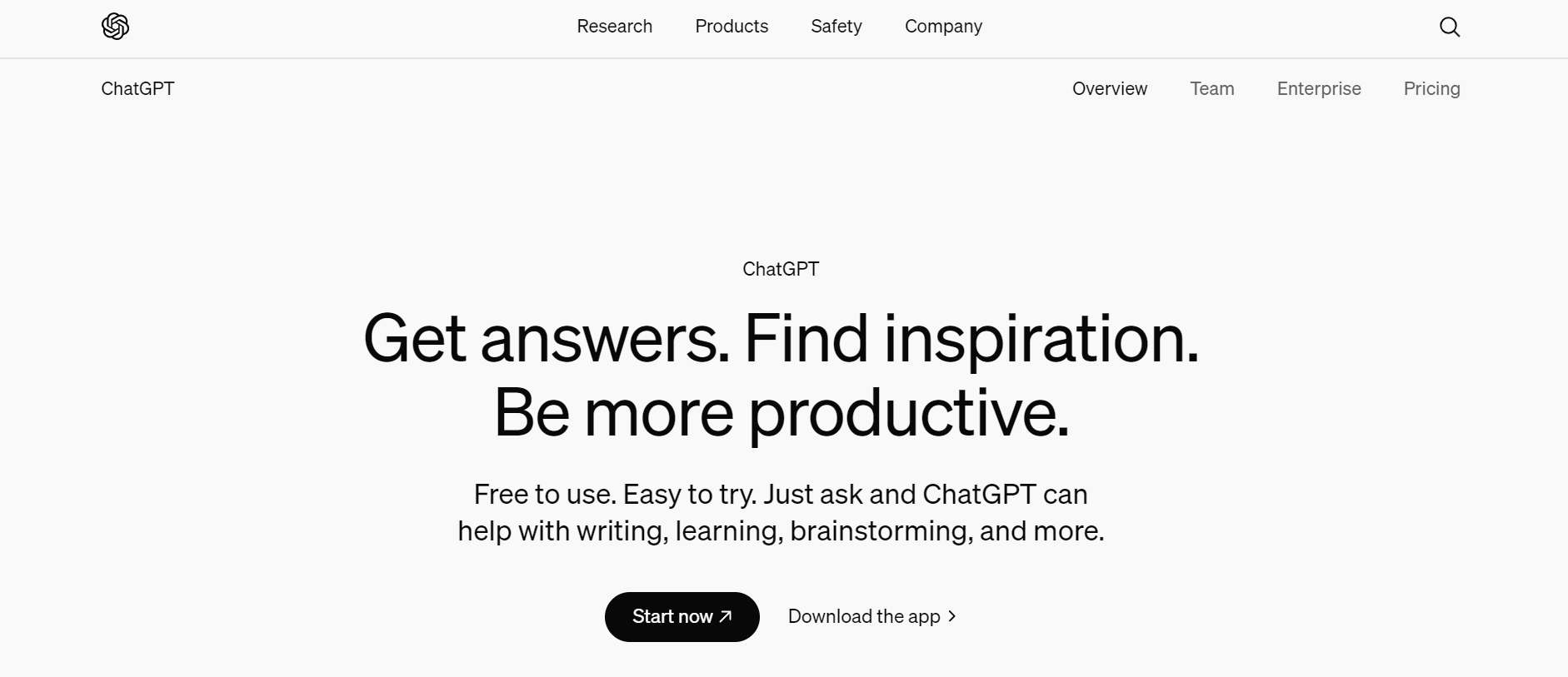
Created by OpenAI, ChatGPT has established itself as a versatile tool capable of handling diverse interactions: writing, programming, research, and more.
Even in its free version, it offers a wide range of uses and integrates easily with other systems via API. Its appeal lies in flexibility, frequent updates [5], and robust functionality.
7. Microsoft Copilot
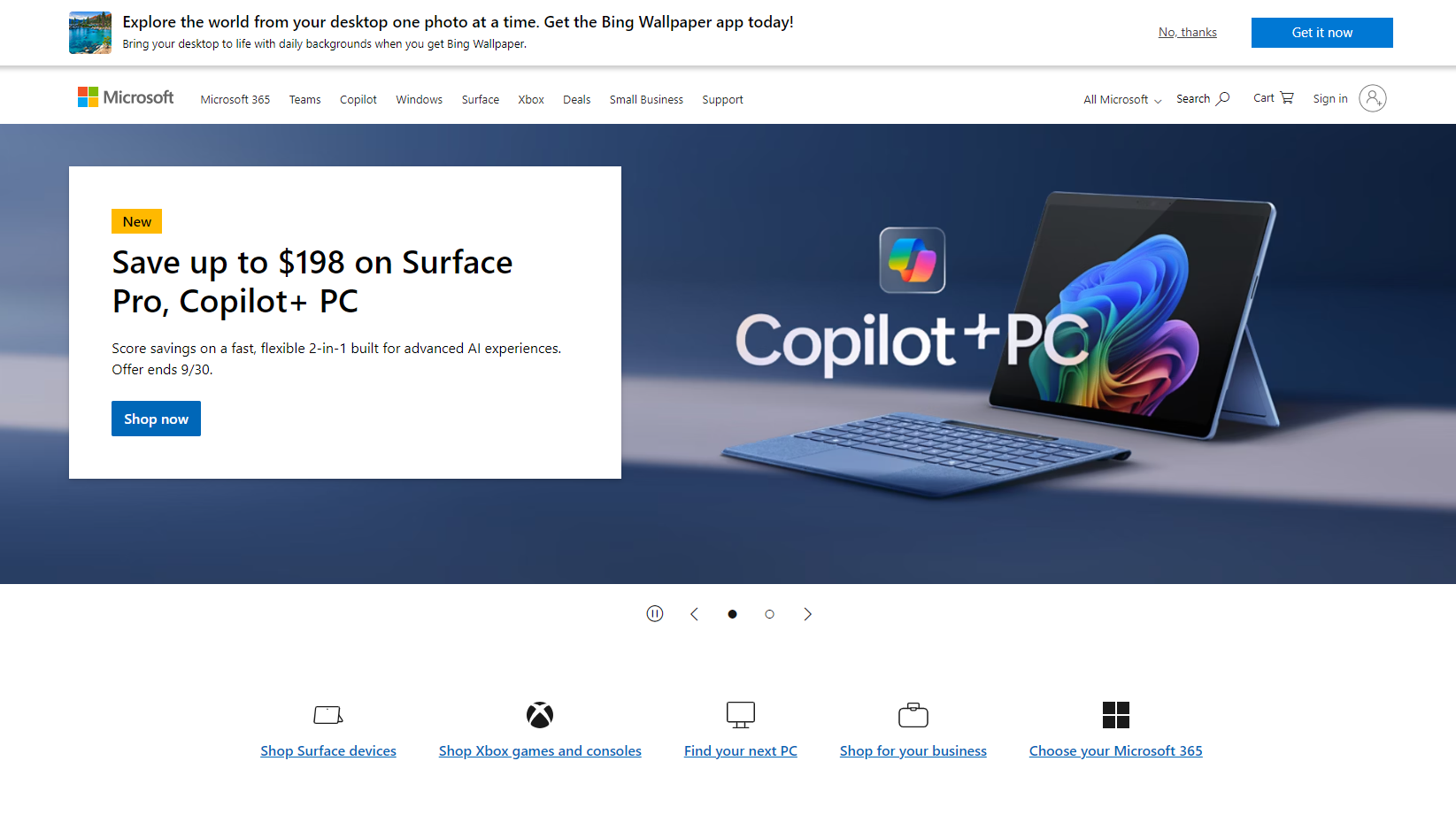
Embedded within the Microsoft 365 ecosystem, Copilot leverages OpenAI's GPT to assist professionals across tasks: writing, note-taking, scheduling, visual generation, and more.
The assistant integrates directly into familiar Microsoft tools, minimising the learning curve and promoting rapid adoption across teams.
8. Claude AI
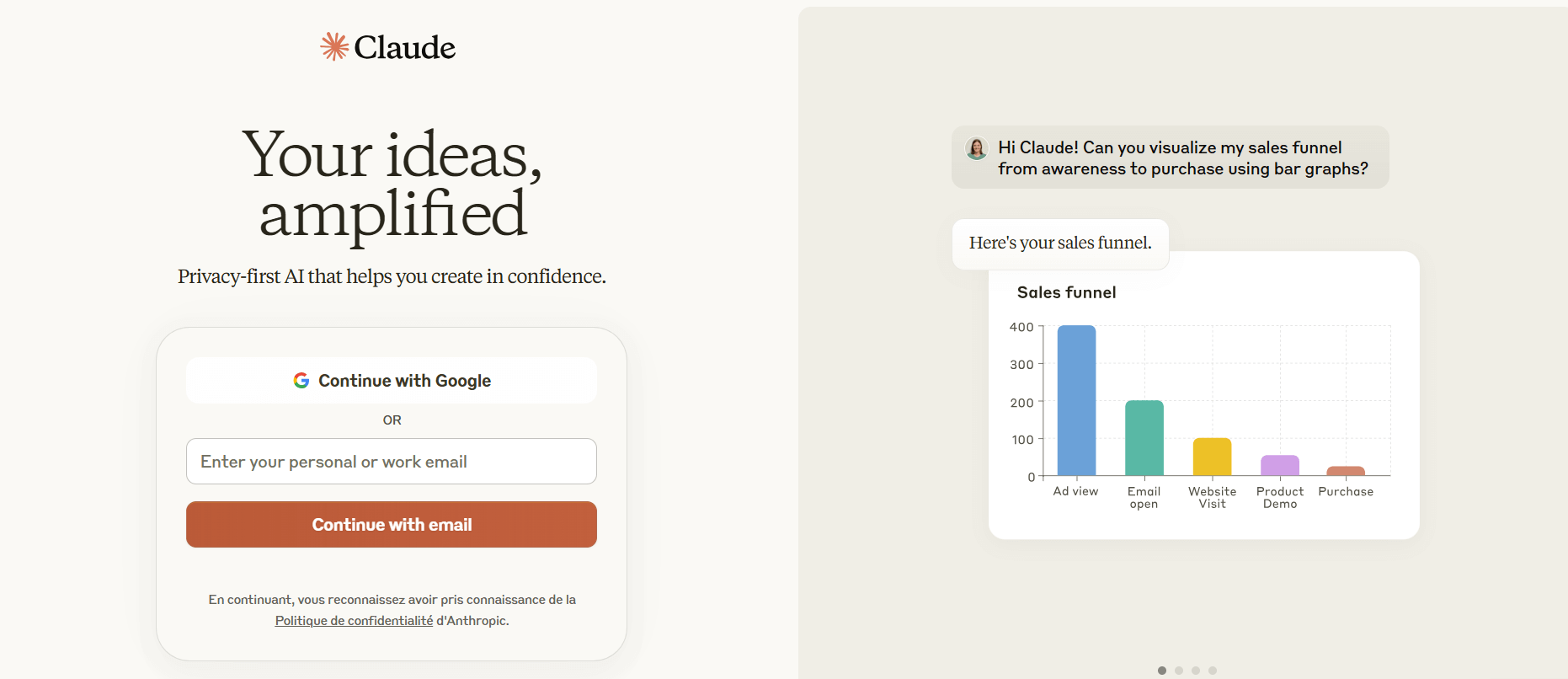
Developed by Anthropic, Claude AI takes a multimodal approach, combining text, voice, and image.
Its refined linguistic analysis and sensitivity to cultural nuances, particularly in francophone contexts, make it a valuable ally for crafting tailored, market-specific content.
Special attention is given to ethics and dialogue quality.
9. Gemini

Developed by Google, Gemini is distinguished by its power in natural language processing and seamless integration with the broader Google ecosystem (as you'd expect).
The assistant is effective for centralising notes, rewriting content, generating images, and optimising workflows—a major asset for teams already immersed in Google's tools.
10. Jasper AI
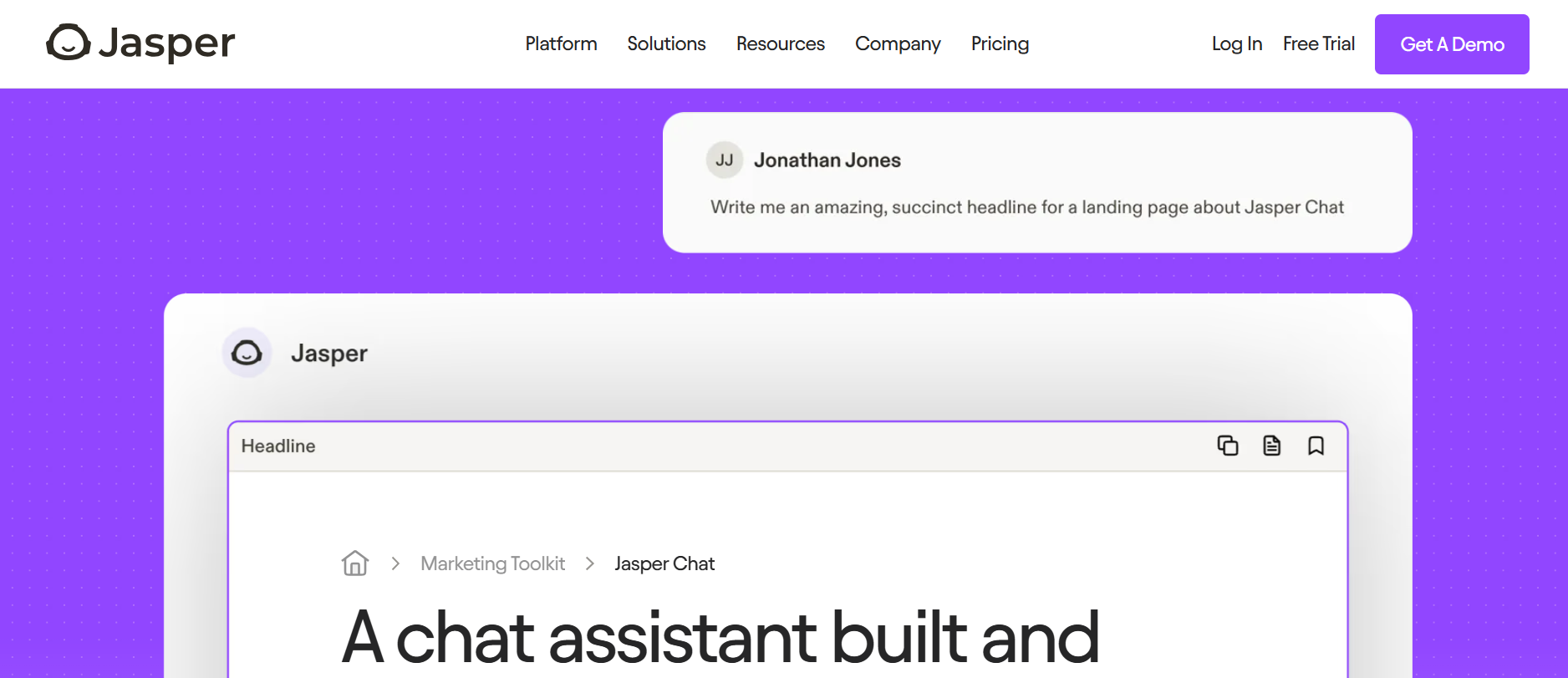
Designed for marketing and content professionals, Jasper AI focuses on simplicity and speed.
Its interface—accessible via text or voice command—enables quick production of articles, posts, or ad copy. It's aimed at those who want to save time while maintaining high-quality output.
11. Notion AI
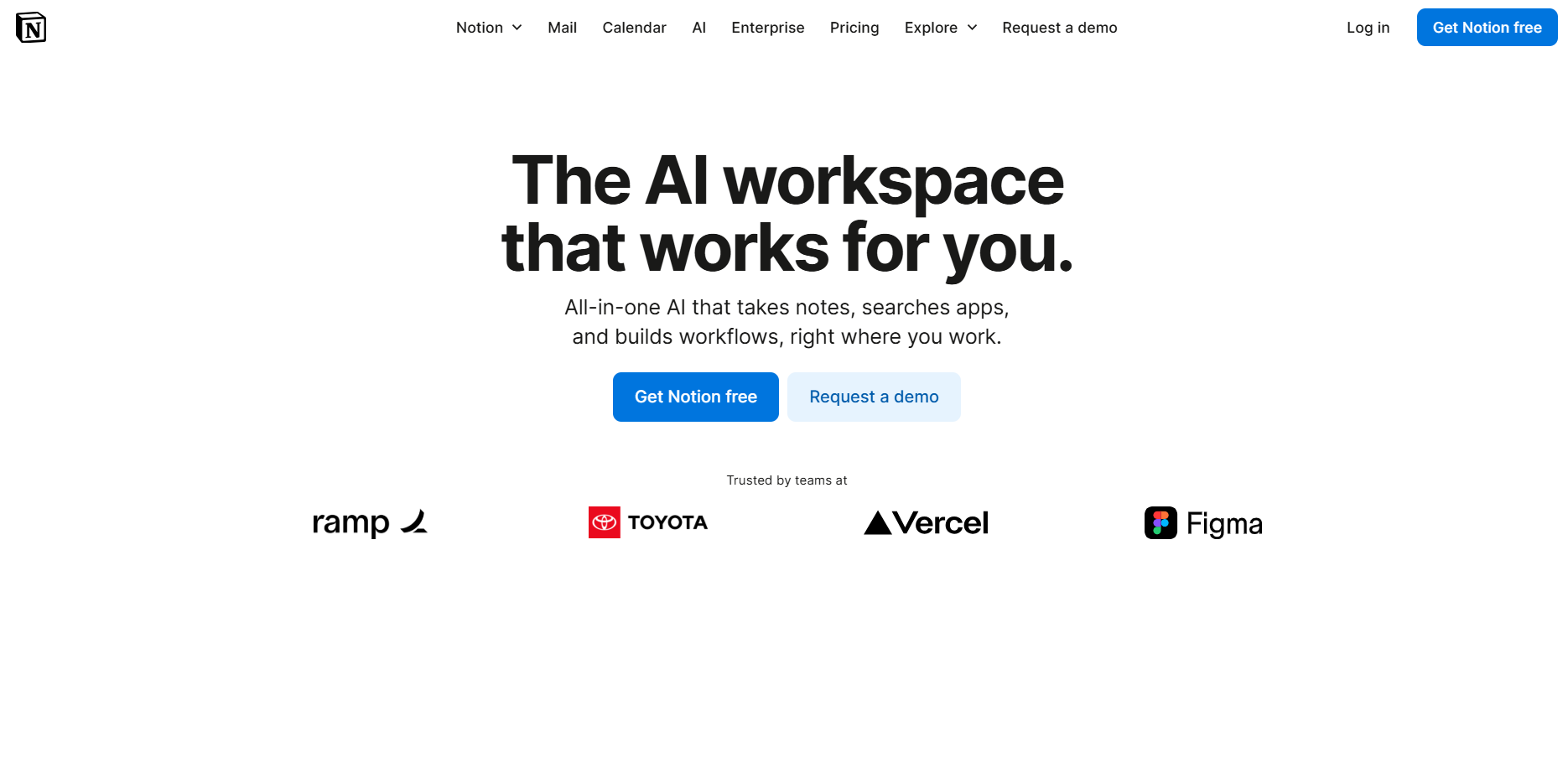
Built into Notion's collaborative workspace, Notion AI enhances productivity and knowledge management by helping teams summarise documents, draft content, and automate recurring tasks.
12. Intercom Fin
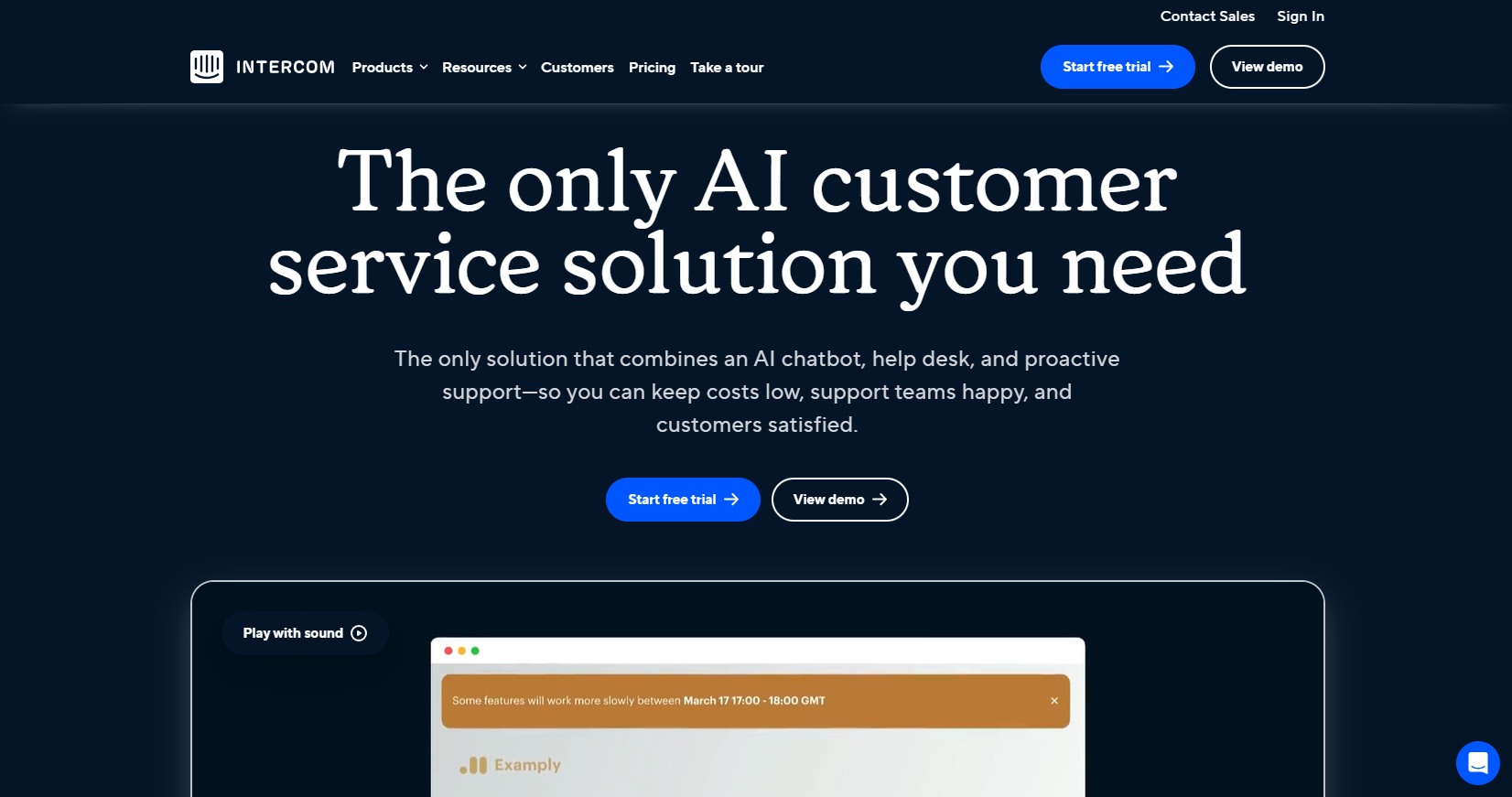
Intercom's Fin is an AI-powered customer service assistant that delivers context-aware, accurate responses within live chat. It helps teams resolve common issues instantly, while escalating complex cases to humans.
13. Fireflies.ai
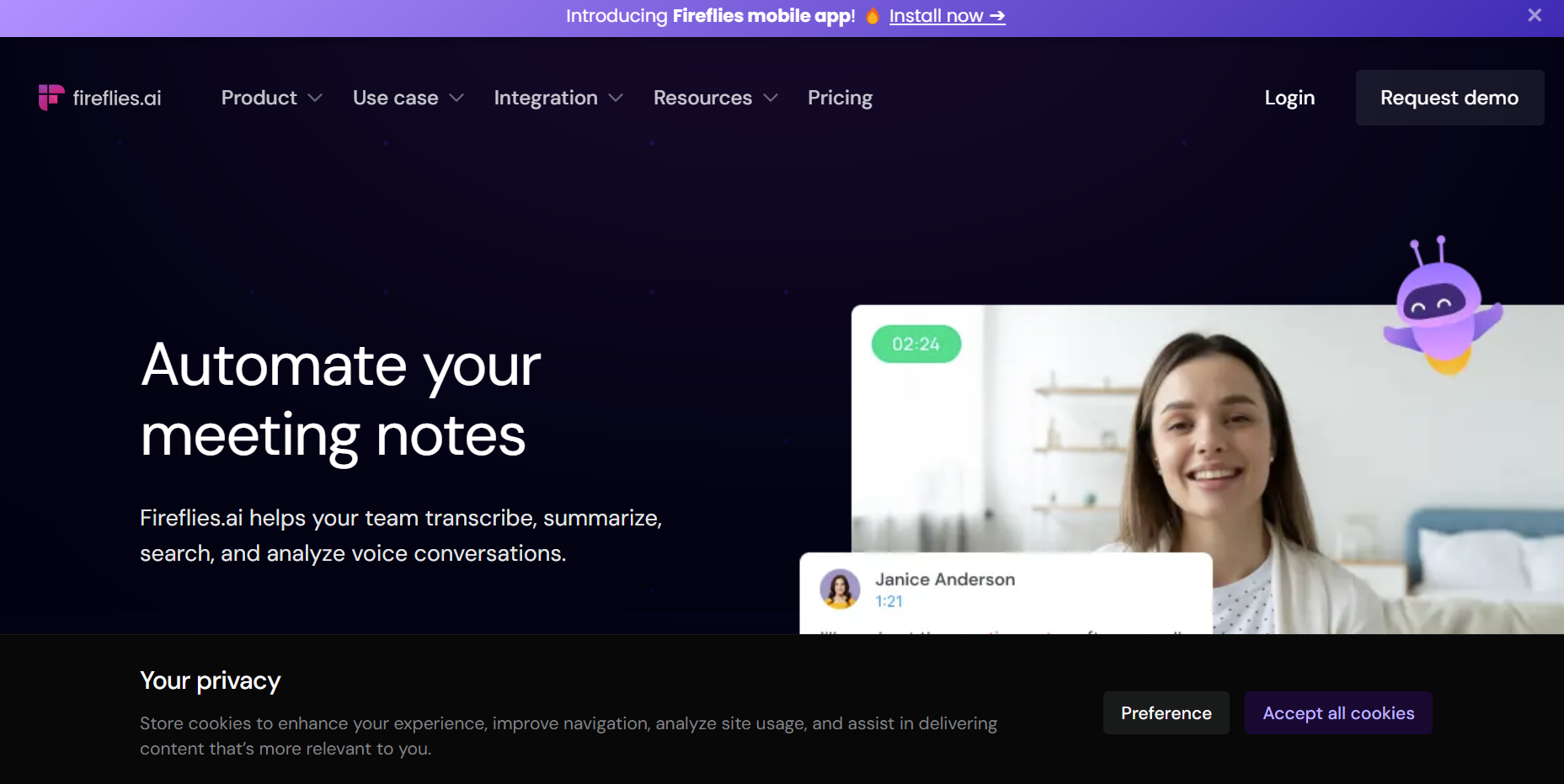
Fireflies.ai specialises in meeting transcription and analysis. It automatically records, transcribes, and analyses calls, extracting action items and insights for follow-up.
14. Ada
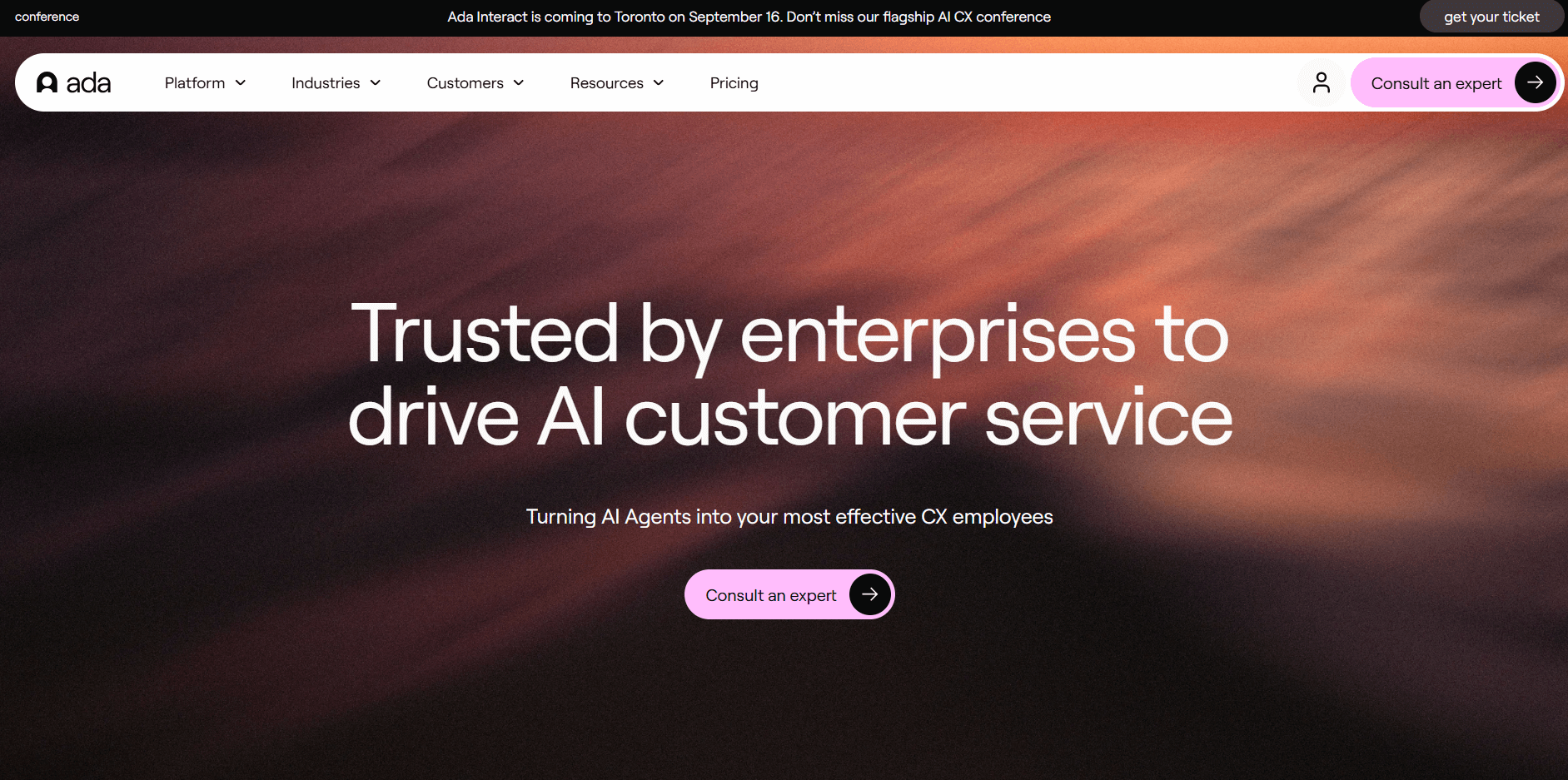
Ada is a no-code customer support automation platform trusted by enterprises worldwide. It enables businesses to build multilingual chatbots and automate routine customer interactions.
15. Kore.ai
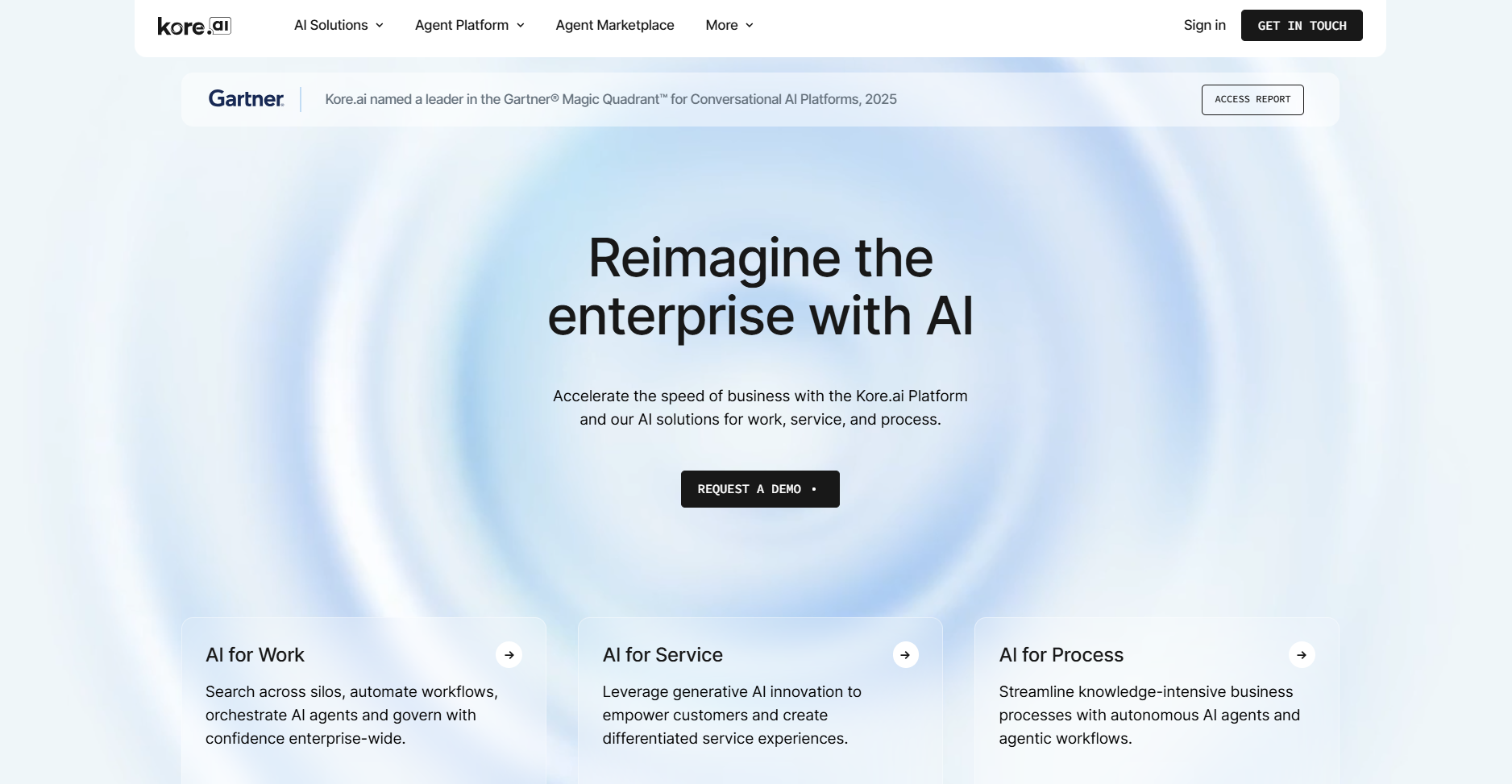
Kore.ai provides enterprise-grade conversational AI solutions, including voice and chatbots, tailored for large-scale customer and employee interactions.
What Are the Benefits of AI Assistants?
AI tools are gradually transforming the way we work by optimising repetitive tasks, thanks to their ability to interpret natural language and integrate seamlessly into professionals' tech environments, regardless of sector. AI-powered conversational agents such as chatbots are widely adopted. In 2025, about 60% of B2B and 42% of B2C businesses used chatbot software to streamline operations [6].
Here are some of the key benefits offered by AI assistants:
A Productivity Booster
In many professional settings, AI assistants absorb part of the repetitive workload:
- Note-taking
- Calendar organization
- Formatting
- Handling common requests
This allows teams to focus their energy on more strategic missions. The impact is measurable: workflows become smoother, deadlines shorten, and flexibility increases.
Fewer Errors, More Consistency
One often underestimated benefit is the accuracy they deliver. By leveraging next-generation natural language processing models, these assistants can handle both written and spoken exchanges while respecting the company's defined priorities.
This level of consistency significantly reduces the risk of human error and ensures uniform quality in interactions.
Always Available
Their continuous presence—day and night—transforms the user relationship. Whether it's a customer seeking urgent answers or an employee looking for information, the response is immediate.
Real-time analysis of behaviours and preferences enables fine-tuned personalisation of every exchange, creating a sense of proximity and understanding that strengthens satisfaction and, ultimately, loyalty.
Easy Integration into Your Ecosystem
Whether connected to video conferencing platforms like Google Meet or Zoom, or to IoT devices, AI assistants generally integrate smoothly into existing tools.
This compatibility reduces adaptation time and encourages widespread adoption, both in offices and connected home environments.
Continuous Evolution
Thanks to machine learning, their scope is never static. They absorb new data, adjust their responses, refine suggestions—and gain in relevance as interactions increase.
Over time, the experience becomes more intuitive, making daily management almost effortless for the user.
AI Assistants: Challenges and Trends
The market for intelligent virtual assistants is expected to reach $14.77 billion in 2024 and grow at a CAGR of 32.72% to hit $60.83 billion by 2029 [7], underscoring the increasing adoption of these technologies.
Toward Multimodal Agents
The evolution of AI assistants is firmly headed toward multimodality: systems capable of analysing and generating text, voice, image, and video within a single interaction.
This convergence enables smoother, more immersive exchanges while making task automation even more effective. It also improves accessibility: for example, an assistant can now adapt to specific needs, such as supporting users with disabilities through more suitable interaction formats.
The Rise of Conversational Commerce
The integration of AI assistants into instant messaging apps and voice devices confirms a major trend: conversation is becoming a full-fledged sales channel.
Whether guiding a prospect, handling a customer request, or finalising a purchase, the transition from discovery to transaction is seamless.
Real-time personalisation, enabled by interaction data analysis, strengthens long-term engagement and loyalty.
Omnichannel Experiences as the Standard
In an environment where touchpoints are multiplying, consistency of experience has become critical.
AI assistants must be able to interact seamlessly through Google Meet or Zoom as well as through connected home devices.
This interconnectedness guarantees service continuity and enhanced user comfort—whether launching a voice command at the office or continuing a conversation across devices.
Ethics and Security at the Forefront
As AI assistants become more sophisticated, questions of privacy and reliability take centre stage.
Organisations are expected to protect data, minimise bias in generated responses, and commit to responsible AI practices.
These requirements are no longer optional—they determine user trust and long-term adoption.
An Inevitable Rise
Rapid advances in machine learning, combined with increasingly powerful models, point to AI playing a central role in managing information flows, scheduling, customer relationships—and more broadly, in both professional and personal life.
This upward trajectory shows no signs of slowing—it's accelerating with every technological iteration.
AI Assistant: A Competitive Advantage in 2026
In 2026, choosing the right AI assistant will represent a major competitive advantage for automating tasks and optimising workflows.
Whether it's a voice assistant, an AI chatbot, or a full conversational AI solution, these technologies boost productivity and enhance user experience.
French solutions like Ringover, Dydu, and Mistral AI offer high-performing alternatives that comply with European regulations.
Don't wait—start exploring these AI tools today and revolutionise the way you work.
Ready to transform your organisation with AI? Discover Ringover's AI assistant and begin automating your business processes in just a few minutes.
AI Assistant FAQ
Do you need an expert to deploy an AI assistant like Ringover's?
No, deploying an AI assistant such as Ringover's is designed to be accessible to everyone, with no advanced technical skills required. Installation takes just a few simple steps via an intuitive interface.
This interface guides users in customising the assistant, connecting data (knowledge base, FAQ, tool integrations, etc.), and configuring features.
In addition, support is often available to further simplify setup, allowing business teams to use the solution without relying on programming experts.
What can an AI assistant do?
An AI assistant can automate a wide variety of tasks, depending on the solution and objectives. Tools like Ringover are designed for companies that want to enhance both customer and employee experience:
- Handling routine customer requests
- Smart escalation to a human agent
- Relevant product or content recommendations
Other AI solutions such as Jasper are more focused on assisting with marketing content creation.
Thanks to natural language processing, these assistants understand and execute commands in everyday language, making communication and daily processes smoother and more efficient.
How do you choose your AI assistant?
When choosing an AI assistant, several key factors must be considered:
- Compatibility with your existing tools
- Ease of integration and use
- Specific features offered (note-taking, voice commands, repetitive task automation)
- Level of customisation
- Data security
- Quality of customer support
It is also recommended to test free versions or demos to evaluate the assistant's benefits against your specific needs.
Citations
- [1]https://www.grandviewresearch.com/industry-analysis/ai-assistant-software-market-report
- [2]https://www.cxtoday.com/contact-center/agentic-ai-gartner-predicts-80-of-customer-problems-solved-without-human-help-by-2029/
- [3]https://www.dydu.ai/en/
- [4]https://en.wikipedia.org/wiki/Mistral_AI
- [5]https://openai.com/index/introducing-gpt-5-for-developers/
- [6]https://www.tidio.com/blog/chatbot-statistics/
- [7]https://www.mordorintelligence.com/fr/industry-reports/intelligent-virtual-assistant-market
Published on September 17, 2025.
-ba25f.png)

